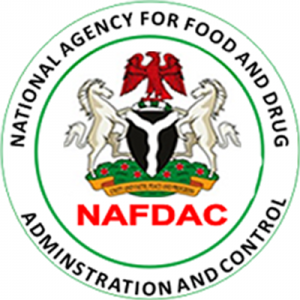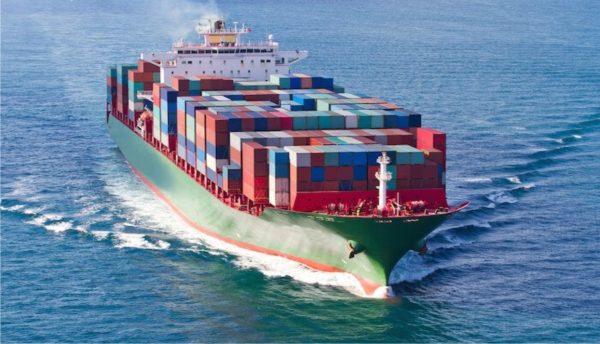SHIPPERS GUIDE
Understanding Functional Export Support Services
 Shippers Guide is the learning page of MMS Plus. Here we answer the five W’s and H of several issues in the shipping industry. This week’s edition focuses on some functional export support services.
Shippers Guide is the learning page of MMS Plus. Here we answer the five W’s and H of several issues in the shipping industry. This week’s edition focuses on some functional export support services.
Pre-programming surveys conducted in many developing countries that share similar characteristics with Nigeria reveal that certain important technical services are needed to support export promotion efforts and that the effectiveness of the support services has a direct bearing on export performance. It is therefore proposed as a part of the export strategy to strengthen these services in Nigeria.
Trade information
Perhaps the most important trade support service needed by companies and for which they are prepared to pay is trade and business information. Following the revolutionary changes in information communication technology (ICT) in the world, considerable amount of information is now available and the manner in which business is conducted is changing fast, driven by this phenomenon.
The most important types of information required by the majority of export businesses relate to foreign buyers, prices, market access, specifications, sources of inputs, technology, trade fairs and exhibitions, training opportunities, etc. Most of the information is, in fact, available on the internet.
Very soon NEPC may have to change its approach on trade information dissemination to training SMEs to be able to access the internet and use trade information.
Action required
Since we are in a computer age and NEPC has 12 Zonal Offices Lagos, Enugu, Jos, Kano, Port-Harcourt, Yola, Minna, Benin City, etc., the practical approach is to set up a network with the hub at Headquarters in Abuja.
To enhance the relevance of the information system, local data should be generated on client companies through surveys on clients’ needs and shared with headquarters. Information sharing links should also be established with collaborating support service providers, trade promotion organizations such as ANE, MAN, NACCIMA, city chambers of commerce, commodity and trade associations and other export producer groups and relevant co-operatives. NEPC should have a website on which all Nigerian export companies and business opportunities should be placed. A system should be set up for regularly updating the data.
Since information is a service area in which technology is changing fast, there should be established a training plan for the officers manning the system to update their knowledge and skills periodically
Export finance, credit guarantee and insurance
Nigeria has several business and export credit facilities and guarantee schemes, including those established at the Nigerian Export-Import Bank (NEXIM). What is not clear is access to these facilities or the extent to which they are used by an average export company.
The need for export finance and support facilities, such as credit guarantee and insurance schemes, has been established. What is needed is how to make the service accessible and affordable to export companies that genuinely need the facility. The various facilities and schemes should be made workable, so that they can be patronized.
Action required
For the purpose of this strategy, the starting point should be to conduct a survey of existing pre- and post-shipment export financing services and support schemes such as credit guarantee and insurance schemes, relevant banking products, etc. as an inventory and to assess their status.
Nigeria is a big country. Estimate the extent to which the services are accessible to an average export company.
Availability of facilities should be publicized for the information of the business community countrywide.
Prepare recommendations for consideration of the service providers and other stakeholders.
Export quality management and packaging
There are two important functions regarding export quality management, packaging and labelling: one is regulatory and the other providing the support service.
The Standards Organization of Nigeria (SON) and the National Agency for Food and Drug Administration and Control (NAFDAC) are the key official regulatory bodies for export quality management and packaging pertaining to technical barriers to trade (TBTs). SON sets the standards while NAFDAC enforces compliance with the standards.
The strategic concern seeks to:
i. Enhance capacity for providing technical advisory services and training to export companies to enable them to comply with the rules and regulations on quality and packaging. This role is played by NEPC, ANE and MAN and other export/trade promotion organizations.
Action required:
Strengthen the capacity of the training and service provider institutions to provide improved support to export companies. This should take the form of training opportunities, visiting resource persons and provision of training materials.
ii. Strengthen the capacity of packaging manufacturers to produce and supply packaging materials that comply with foreign market entry requirements and standards set by the regulatory bodies. Nigeria has companies that manufacture packaging materials for supply to export companies. Certain export companies import their own packaging materials.
Action required:
Establish a system whereby occasional visiting experts provide technical advice to the packaging material manufacturing companies, so as to keep abreast with new developments in the industry. This may be established through African Regional Standards Organisation (ARSO), UNIDO and ITC. Conduct a survey to assess the possibility of setting up a Packaging Institute to support the agricultural and manufacturing sectors and export.
iii. Strengthen the technical and outreach capacities of SON and NAFDAC. The latter needs to co-ordinate its activities with the Nigeria Customs Service to reduce multiple checks and overlapping controls by different tiers of government which the business sector considers harassment.
Action required:
a. Provide training opportunities to technical staff to upgrade their knowledge and skills.
b. Establish a system for regular replacement and upgrading of equipment and supply of books and other professional materials.
c. Arrange occasional visits to NAFDAC and SON by foreign experts as well as exchange programmes for staff to share experiences.
d. Increase the inspection and advisory capacity of NAFDAC and SON for manufacturing and export companies, importers’ shops and warehouses.
e. Strengthen the capacity of NAFDAC and Nigeria Customs Service to prevent entry to Nigeria of illegal goods (contrabands, sub-standard goods, fake products, expired products, dumped goods, etc.).







